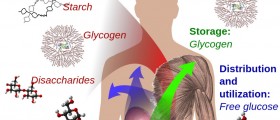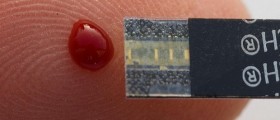
The endocrine system in our body takes care of various processes. Therefore, the creation of cells, their growth and the growth of our organs, as well as well-functioning of our metabolic system are all areas under control of the endocrine system. On the other hand, the nervous system takes care of the actions happening abruptly and quickly, such as breathing and movements we make.
Facts about the Endocrine System
Another important role of the endocrine system is balancing the production of hormones and secretion levels. The production of hormones is not carried out from a single organ or gland. Rather, a whole system of different body parts is involved in the process, with the endocrine system overlooking and controlling the whole procedure.
However, when some of the organs and glands are not functioning properly, different diseases may develop. For example, if the pancreas stops producing enough insulin, people develop type 1 diabetes. This takes place due to the fact that the immune system starts attacking the pancreas cells, inhibiting the processes of insulin production. Hence, this is an autoimmune disorder.
Endocrine Organs and Diabetes
The usual treatment for type 1 diabetes is insulin administered via injections. However, this takes care of symptoms without addressing the cause of the problem. Namely, if the pancreas is not working correctly, it will not benefit from insulin injections. Rather, it continue producing insulin abnormally, possibly leading to serious fluctuations and numerous diabetes complications.
In order to successfully treat the cause behind diabetes, one needs to treat the affected endocrine organs. Namely, these may be the hypothalamus, pituitary gland, thyroid gland, adrenal glands, pineal body and reproductive glands. All these need to work in harmony in order to prevent diseases. Thereby, all need to be included in the treatment and diagnosis.
First of all, the hypothalamus controls the metabolic processes in the body creating a connection between the nervous system and the endocrine system itself, being in charge of the secretion control.
Secondly, the pituitary gland is located in the brain and is a small gland which produces almost all hormones that our body needs. Therefore, this gland influences our emotions, sex drive, body temperature, hunger, thirst etc.
When people suffer from diabetes, they are thirsty most of the time, due to the fact that the pituitary gland is working overtime, trying to balance the organism's need for extra glucose. At the same time, the thyroid gland, found in the lower neck area, produces a special hormone which further deals with our metabolism as well as calcium absorption. The parathyroid glands are connected with the thyroid gland and are mostly involved in calcium regulating processes.
As for the rest of the endocrine organs, the adrenal glands are found above the kidneys, regulating water, salt, stress and sex drive levels. The pineal gland controls our sleep while the pancreas deals with the blood sugar and energy levels in the body.
















Your thoughts on this
Loading...